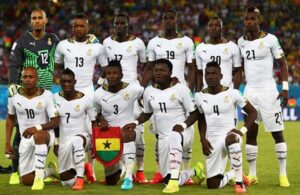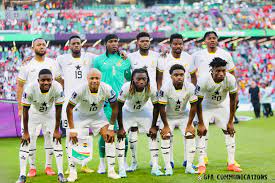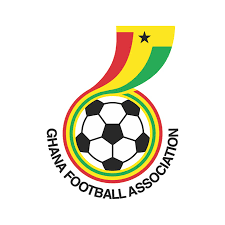The exclusion of Dede Ayew from the last two matches of the Black Stars has sparked mixed feelings in the Ghanaian football community. This situation is a wake-up call for the Ghana Football Association (GFA) and other stakeholders to establish rules and guidelines for aging Black Stars players, recognizing and celebrating their contributions. Over the years, these players have given us ample reasons to celebrate as a nation, igniting patriotism and putting Ghana on the global map.
This is not the first time such issues have gained attention in Ghanaian football. Similar sentiments were raised during the careers of Asamoah Gyan, Stephen Appiah, Michael Essien, Sulley Muntari, and many others. Many of these players left the national team reluctantly and with a sense of bitterness, often feeling unappreciated despite their contributions.

Legends like Osei Kofi, Mohammed Polo, Abedi Pele, Tony Yeboah, and Sammy Kuffuor were celebrated in their prime but retired abruptly without proper recognition. The same fate befell Stephen Appiah, Michael Essien, Sulley Muntari, John Mensah, and Asamoah Gyan, who were almost forced out of the national team by the same people who once hailed them.
While it is true that “there is a time for everything,” including a time to play and a time to retire, every institution should have rules and systems to regulate, sustain, and reward contributors.
Age Limits for Players
Although age is often considered just a number, it inevitably brings physical decline. The GFA should set a retirement age for players in the Senior National Team, perhaps at 35. This would allow players to prepare and retire honorably and enable the coach and team management to plan effectively.
Setting a clear retirement age would also inspire young players eager to contribute to the nation and eliminate unnecessary emotional reactions from fans. Players would automatically know when their time is up.

Exceptions could be made for players who continue to perform exceptionally well beyond the retirement age. Their inclusion should be at the discretion of the coach or management team, and they should be aware that they are there on a temporary contract rather than as regular players.
Players should also have the option to retire earlier than the stipulated age if they choose. All other criteria for player selection should remain in place.
Acknowledging and Celebrating Players
When a player reaches the retirement age, whether they are a regular player or not, they should be acknowledged and celebrated. This would eliminate the bitterness many players feel and serve as motivation for younger players.
A “Retirement Game” or similar event could be organized every three years for all players retiring in that period. If only one player retires in a given period, they should still be celebrated. Group celebrations every three years would allow for a larger, more significant event.

Other Related Issues with Black Stars
Rebuilding the Black Stars should not be a primary concern for coaches. If rebuilding is necessary, it should start with the under-17 or under-20 national teams. The gradual transition from junior national teams to the senior national team should be the primary criterion for forming the Black Stars, with exceptions made only in extraordinary circumstances.
Coaches may scout for talented older players from the Ghana Premier League or other leagues, but their inclusion should be gradual.
Switching Nationality for Ghana
Foreigners or Ghanaians born abroad who wish to switch nationality and play for Ghana should be encouraged to join the junior national teams, particularly the under-20 team. This approach helps integrate players culturally and emotionally into the team, considering the unique passion Ghanaians have for football.
The environment and culture where a player spends most of their time significantly influence their integration into a new team. A player excelling in one team or league may not fit seamlessly into another due to differing styles of play and formations.
The essence of the Black Stars and other national teams has diminished over the years, reduced to mere business transactions for “selling and buying players.” The love for money has eroded the patriotism, euphoria, sacrifices, and commitment to the country that once characterized players like Robert Mensah, Mohammed Polo, Abedi Pele, and Kwasi Appiah.
Recent media reports highlight how the pursuit of money by players, GFA management, and even a minister has overshadowed national pride. It is disheartening that something that unites the nation is being exploited by a few individuals.
Ghana National Teams, Our Pride
Despite the many divides in Ghana—political, religious, tribal, or familial—the national teams unite us. Ghanaians pledge their lives to the national teams, finding unity and pride in supporting them.
Even when national teams perform poorly, and fans swear never to support them again, they return to cheer them on. While friends may be divided over Premier League teams, they come together for the national teams.

Finally, while the GFA is called upon to address the issues of aging players and their celebration, “die-hard supporters” of the Black Stars and other national teams should be patient with players and management. Our criticisms and reactions should be constructive rather than destructive. Today, Dede Ayew faces scrutiny; tomorrow, it could be another player in their peak moments like Kudus.
Constructive feedback, rather than harmful words, will help players and management make better decisions. Players may resist leaving or retiring because “the spirit is willing, but the body is weak.” Without clear rules on retirement, players are not wrong to resist being cast aside unceremoniously. This is not patriotic and dehumanizes the players.
Yes, the voice of the people is often the voice of God, but it should never attack the dignity of a person.

By Rev. Fr. Nicholas Nibetol Aazine, SVD
Coordinator: Justice, Peace and Integrity of Creation.
Society of the Divine Word (SVD) A Catholic Religious and Missionary Society Serving God through Humanity
Email: nicholasbetol@gmail.com



